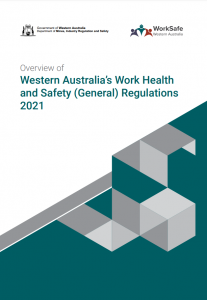The State Government has released an overview of the regulations that will be used to enforce WA’s new work, health and safety laws when they come into effect in January next year.
The Work Health and Safety Act 2020 will be supported by three sets of regulations:
• Work Health and Safety (General) Regulations – applies to all workplaces except those covered by the other two sets of regulations;
• Work Health and Safety (Mines) Regulations – applies to mining and mineral exploration operations; and
• Work Health and Safety (Petroleum and Geothermal Energy Operations) Regulations – applies to onshore and offshore petroleum, pipeline and geothermal energy operations.
In an overview published by the Department of Mines, Industry Regulation and Safety on October 18, the General Regulations are broken down into the following key areas:
- representation and participation
- managing risks to health and safety and general workplace management
- hazardous work involving noise, hazardous manual tasks, confined spaces, falls, demolition work, electrical safety and energised electrical work, diving work and licensing of high risk work and accreditation of assessors of competency
- plant and structures
- construction work
- hazardous chemicals including lead
- asbestos
- review of decisions, exemptions, and prescribed serious illnesses

Commencement of the Act will be the biggest change to WA’s occupational safety and health system since the 1980s.
The changes, which bring WA closer in alignment to other Australian states and territories, will significantly impact businesses, requiring a massive update of safety systems and practices.
Read more: WA’s workplace safety shake-up is here
The new WHS laws impose a primary duty of care on persons conducting a business or undertaking to reasonably ensure the health and safety of workers.
It also contains a new denotation for those who make or influence significant financial or operational decisions in the business: officers.
In addition, tougher liability laws mean directors and board members may be held personally liable for health and safety failures.
“Clarity over the new WHS Regulations is an important step in allowing organisations to review their existing safety policies and systems to ensure they comply with the new legislation,” says CCIWA Principal Workplace Relations Advocate Paul Moss.
“With the new laws expected to take effect early next year there is an increased urgency to finalise these reviews.”
For support working through the new laws, contact our WHS team on (08) 9365 7415, or via [email protected].












